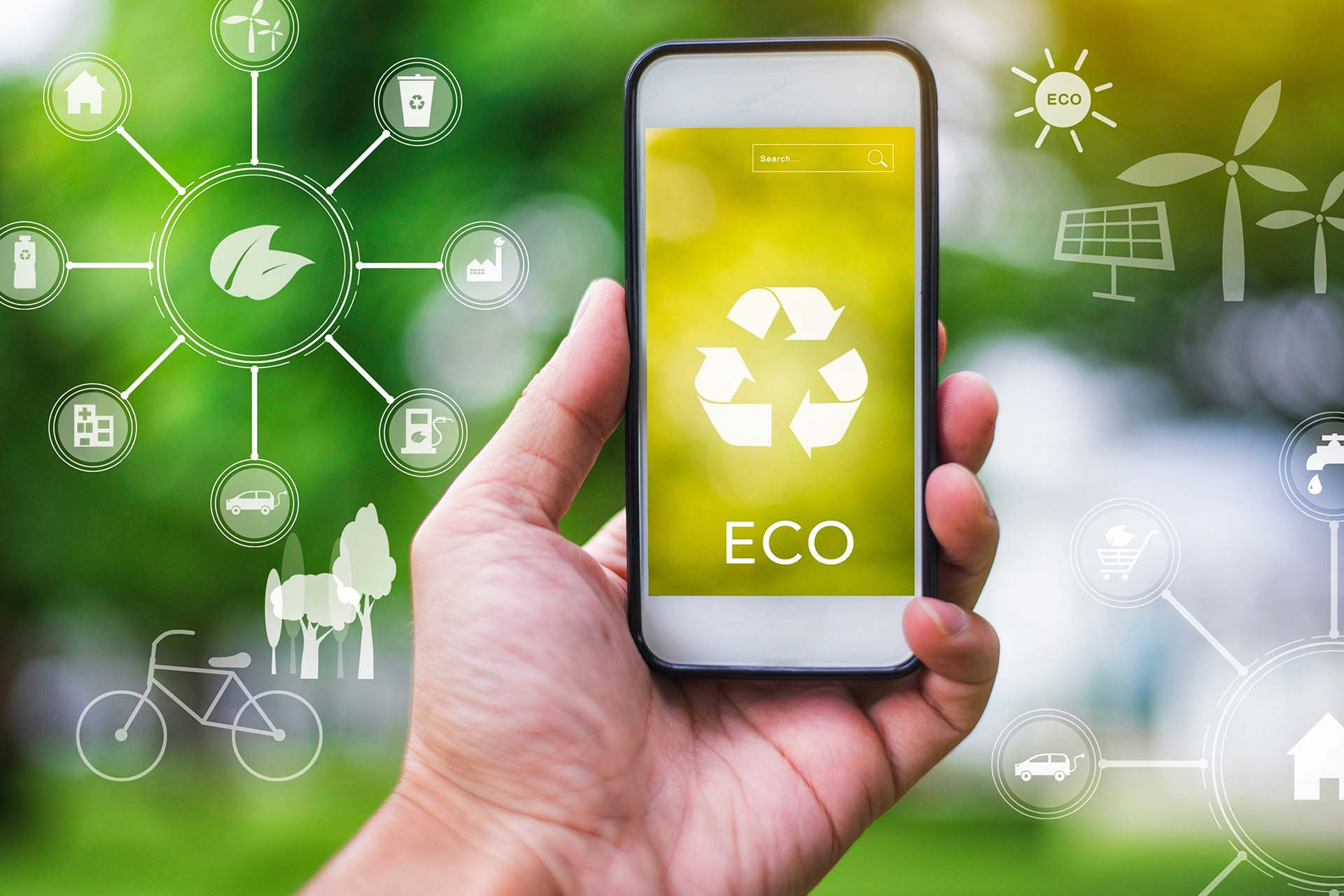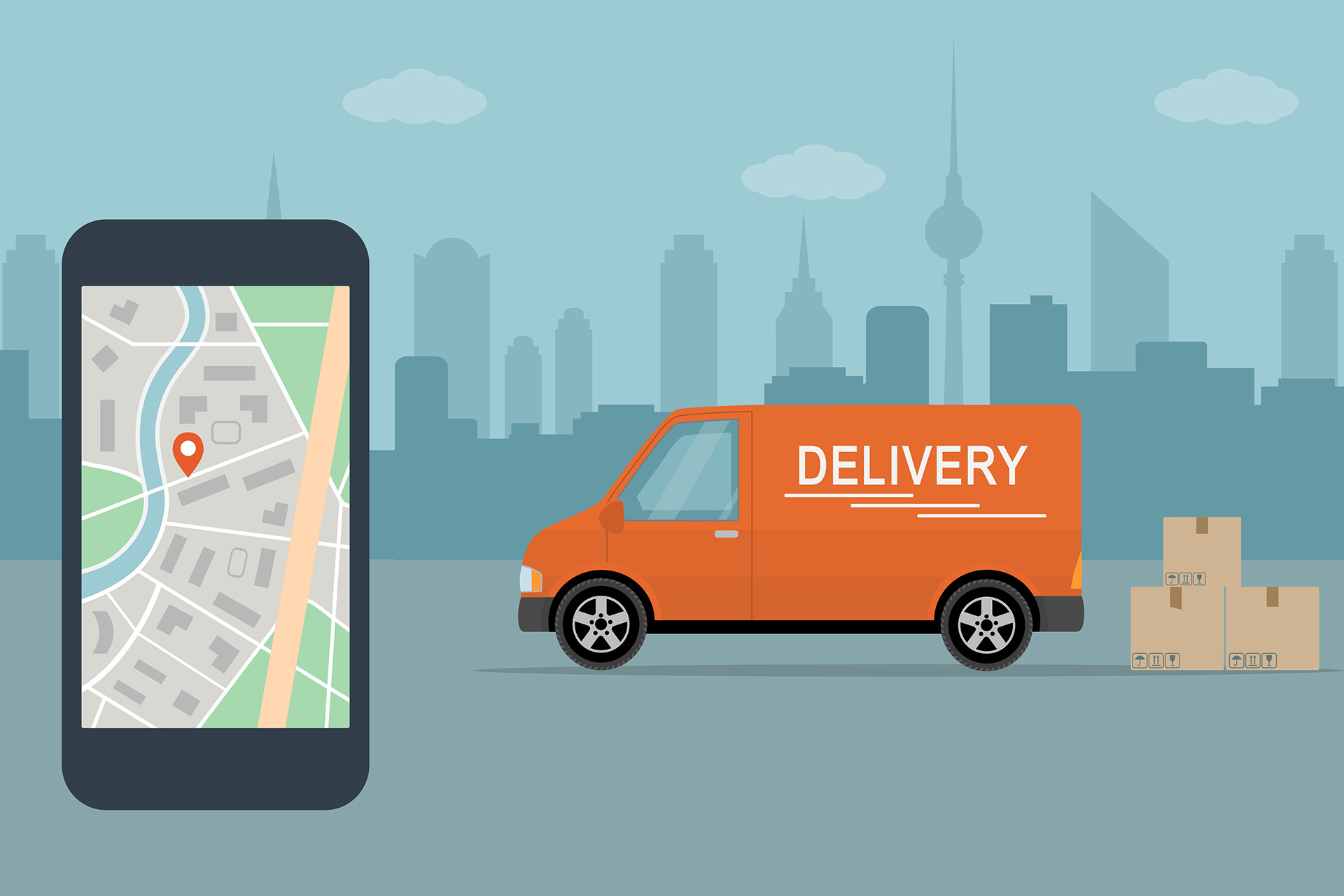
Sustainability is first and foremost about action. At Pinja, we make our biggest sustainability contributions together with our clients by driving digitalization and streamlining our clients’ businesses across a myriad of industries. Our solutions help reduce energy use, raw material demand and waste, minimize unnecessary transportation, improve occupational and personal safety, and meet carbon footprint and sustainability reporting requirements. Digitalization also contributes to the other 17 UN Sustainable Development Goals.
In the previous blog post How digitalization is driving sustainability in practice, part 1/2 – increasing sustainability, reducing excessiveness, we discussed topics such as reducing waste and ecological footprint in industry and the circular economy. In this article, we look at how we help develop sustainability in the areas of construction, trade and services, vehicle inspections, wellness and health technologies, and the digital society.
Less paper, faster action, smarter routes
Many of Pinja’s clients are already working towards sustainability as a business concept, and through joint development efforts we have also been able to streamline our clients’ operations. Our Total ERP clients include LämpöYkkönen, a provider of geothermal heating and heat pump solutions, EcoUp, a provider of green building solutions, and Greenled, a provider of smart lighting solutions that reduce energy use.
- It is a pleasure to help our sustainability clients shine even brighter. A comprehensive ERP solution can, for example, optimize logistics routes and thus reduce emissions. In addition, integrations that reduce paper consumption and speed up operations can be implemented, and official reporting can be handled efficiently and digitally, for example to the tax authorities, says Ari Harjula, who heads Pinja’s Total ERP business.
For example, Pinja helped Freebo AB, a fast-growing Swedish supplier of solar panels and electric car charging stations, integrate its entire customer journey into Total ERP. Clients have been able to promote sustainable values in areas such as inventory management, logistics and route planning.
Modern eCommerce is paperless, and deliveries are handled from a local warehouse
In a growing eCommerce environment, maintaining an efficient delivery process is no longer enough for an eCommerce platform, but requires efficient ERP across the entire store. To make internal processes work, there must be an understanding of the complexity of trading processes. The development of an omnichannel sales and delivery process and customer-driven growth is supported by a dedicated ERP system for the retail sector.
- One of the key aspects of responsible digital commerce is the efficient use of map services – something that our clients such as Veikon Kone are putting into practice effectively. When orders are delivered to the address of the customer’s choice from the nearest warehouse using map services, there are significant savings in terms of the environment, costs, and time says Tero Kangas, who manages Digital Commerce at Pinja.

Reducing paper is also an important part of being a responsible online retailer. Printing a single order confirmation or bill won’t turn the tide, but with the explosion of digital commerce, the real impact will come from the significant, and still growing, total number of purchase transactions.
In the vehicle inspection sector, sustainability is linked to road safety, emissions, and fuel consumption data
At the heart of digital solutions for the vehicle inspection sector is helping inspection companies make a significant contribution to road safety. Studies show that combining digitalization with reliable and efficient vehicle inspections will help reduce road fatalities. At national level, vehicle inspections also have an impact on emission levels.
- Optimally, vehicle inspections can aim at more than just meeting the minimum criteria of the regulations. In addition to passing or failing the inspection, the end customer can also be given more extensive information about the condition of their vehicle, emission levels and fuel consumption, says Kimmo Kasurinen, head of the Muster business.
Because our SaaS service Muster by Pinja serves as a complete ERP system, it streamlines the data management of inspection stations, and also helps reduce the amount of paper. For example, our client Carspect uses Muster for inspection booking, cashiering, resource allocation, filling inspection cards, and completing the inspection. It is also used internally for customer data management, billing, and comprehensive reporting.
Our health and wellbeing technology solutions support quality of life, wellbeing, and health
The focus of technology solutions for health and wellbeing must always be on people – not technology. The role of technical solutions is to ensure that professionals are in the best possible position to carry out their work in a high-quality, consistent and efficient manner. Keeping up-to-date with legislation and quality requirements is also an important part of a good digital solution.
In the area of health and wellbeing, Pinja’s services contribute to the UN Sustainable Development Goals, especially to health and wellbeing, but also to reducing inequalities. Effective system solutions reduce and automate the manual work of healthcare professionals in public and private sectors alike, freeing up their time for client work.

For example, our client Evondos has innovated a service to ensure high quality of medical care and improve people’s health and quality of life. It offers a solution to the single biggest problem in medicine: people not taking their medicines as prescribed by their doctor. According to the World Health Organization, up to 50% of doses of medicines are taken incorrectly, but the Evondos® dispensing service system, jointly designed by Evondos and Pinja, has radically reduced the number of errors. The number of medicines taken correctly was as high as 99.5%.
The Evondos system is marketed as a medical device, which is much more regulated by law than other systems. This also required our whole team to be systematic, have careful documentation and traceability in place, and to follow industry standards and other regulations closely, says Pinja’s BI Unit Manager Petteri Väisänen.
Pinja’s software development certification for medical devices enables Evondos and other clients in the healthcare and wellbeing sector to innovate quickly and efficiently into new markets.
Optimizing systems and IT management to reduce electricity consumption
ICT services are the hard core of modern business, with a wide range or requirements, both hardware and software. Together with its clients, Pinja promotes the sustainability of ICT solutions by, for example, streamlining software solutions and optimizing the energy consumption.
Sustainability is at the hard core of Pinja’s business, both in the big picture and in the daily operations. We help our clients cut the excess and focus on the essentials in product and service production – across all industries.
On the equipment side, it has long been Pinja’s practice to pass on equipment that is still in working order but has been in use for more than three years, such as workstations and telephones, to staff or other beneficiaries.
This has been a good way to extend the life cycle of the equipment in a natural and sustainable way. We are also planning to launch a three-tier system where we divide equipment that have been in service for more than three years either for further use in the business, for resale or – if they no longer serve any new purpose – for sustainable disposal through a recycling center, says Tuomas Lassila, head of Pinja’s ICT unit.
As even large entities are made up of small chunks, Pinja also produces energy-efficient code. The same function can be achieved in many different ways, but then implemented in streamlined code, they require less processing power to work. A single code snippet does not yet have a significant environmental impact, but when all of them are cumulated together, it has even more of an impact.
An important part of Pinja’s ICT services specialization is that minimizing the required processing power and power consumption is taken into account at all stages of the service chain – from coders to interface designers and from platform architects to administrators. All our clients benefit from these principles: capacity optimization is directly reflected in energy consumption and, therefore, also in clients’ costs.
For example, for our client Kuntien Tiera, we implemented a reform of the service voucher and purchasing service system, which involved a system optimization that significantly reduced the need for server capacity. The electricity consumption of the service system serving more than two million Finns was reduced by as much as 80%.
Sustainability is at the hard core of Pinja’s business, both in the big picture and in the daily operations. We help our clients cut the excess and focus on the essentials in product and service production – across all industries. Our solutions not only make business more sustainable, but also more productive and motivating for employees. In the 2020s, we will have all the technical capabilities to build sustainability naturally into our clients’ businesses, and we at Pinja are determined to seize this opportunity to the full.
Read more
How digitalization is driving sustainability in practice, part 1/2 – increasing sustainability, reducing excessivenessWhat role does digitalization play in sustainable development?
Pinja's services
Back to the Pinja Blog
Categories
- Career at Pinja (68)
- Manufacturing (46)
- Knowledge Management (45)
- Production Development (44)
- Software Partnership & Tools (42)
- Sustainability (37)
- Wood and Forestry (37)
- Bioenergy and Recycling (29)
- IT Support and Outsourcing (24)
- Ecommerce (23)
- Maintenance (22)
- Artificial Intelligence and Machine Learning (15)
- Public Services (9)
- Compliance (1)
